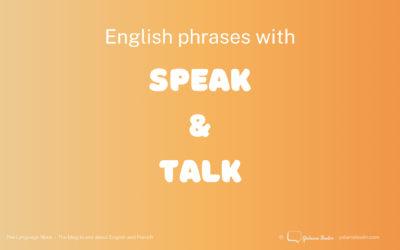I, me and myself are all pronouns but they are used differently.
Although these three pronouns all represent the same person (first person singular), they have a different role in the sentence, so it is important not to misuse them.
I is a personal pronoun, use it as a subject:
- I am here.
- I arrived at 8 pm.
- I love chocolate.
Also use I even when combined with another subject:
- Clare and I went to the pub last night.
- You and I are going to a party tonight.
- My family and I travel a lot.
Note in the last three examples that you can replace “Clare and I”, “You and I”, “My family and I” by the subject pronoun “we”. This means you cannot use me here.
Me is an object pronoun, it replaces the object of a sentence:
- She wants to come with me.
- They sent me a lovely postcard.
- Tell me what happened.
Note here the subject is different from the object.
Myself is a reflexive pronoun. It means the subject and the object of the sentence are the same.
Useful tip! Only use myself if the subject is I:
- I cut myself while cooking.
- I’ll introduce myself to the new team.
- I can do it myself.
Mémo :
I → subject of the sentence (I do something) Note: I always takes a capital letter!
me → object of the sentence (someone else does something to, for, about… me)
myself → object after the subject I
The same works for all other personal pronouns: you, he, she, it, we, they. Here is a recap chart for you:
| Singular | Plural | |||||||
| subject | I | you | he | she | it | we | you | they |
| ↓ | ↓ | ↓ | ↓ | ↓ | ↓ | ↓ | ↓ | |
| object | me | you | him | her | it | us | you | them |
| ↓ | ↓ | ↓ | ↓ | ↓ | ↓ | ↓ | ↓ | |
| reflexive | myself | yourself | himself | herself | itself | ourselves | yourselves | themselves |
Look at the following examples, they can help you understand how the different English pronouns are used:
- He asked her a question.
- We prepared ourselves for the competition.
- She gave them a glass of water.
- They invited us to dinner.
- You must tell him now.
- The picture speaks for itself.
There you are! You can now use the personal pronouns correctly and will no longer mix up I, me and myself. Congratulations! 😉





0 Comments